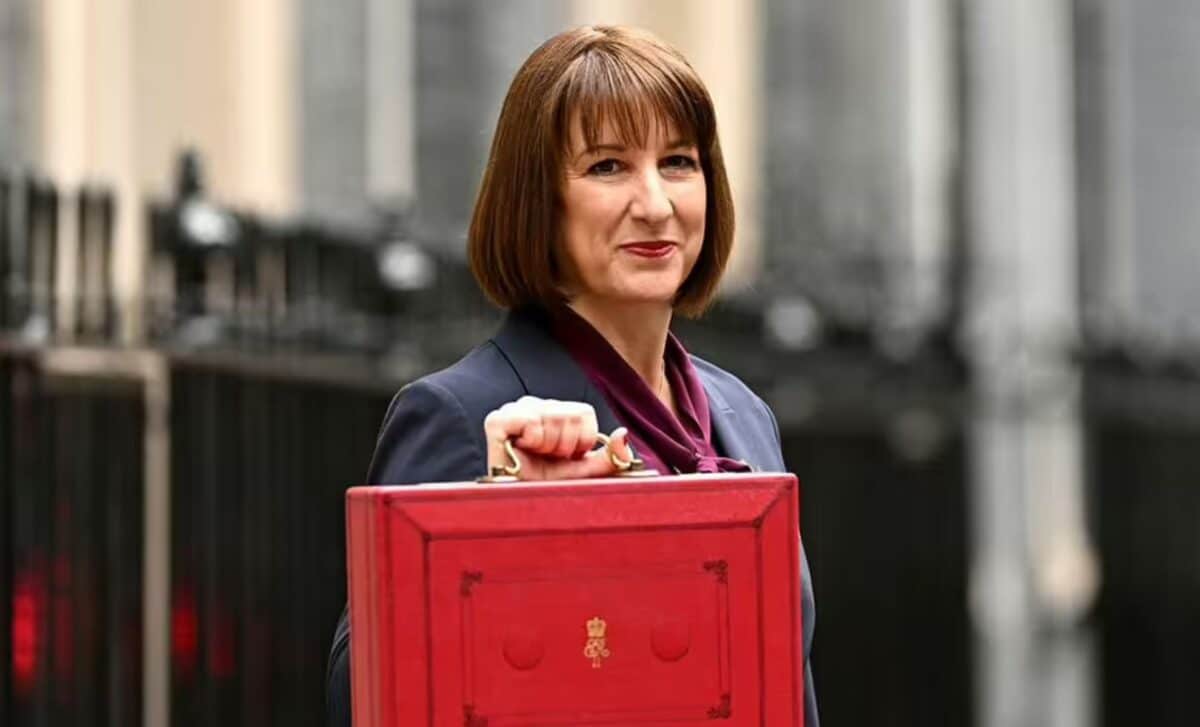As the UK enters 2024, business confidence has taken a sharp turn for the worse, with growth expectations now firmly in negative territory. According to the latest data from the Confederation of British Industry (CBI), businesses across the country are bracing for a challenging year ahead, marked by rising costs, increased tax burdens, and growing uncertainty. The CBI Growth Indicator has fallen to its lowest point since the early months of the COVID-19 pandemic, signalling a serious slowdown in economic activity. This shift is compounded by a broader sense of pessimism about the government’s ability to steer the economy towards a recovery, leaving many firms questioning their future prospects.
The stark downturn in business sentiment comes as rising National Insurance Contributions (NICs) and higher taxes continue to put pressure on businesses already struggling with inflation, labour shortages, and energy costs. With Rachel Reeves, the Shadow Chancellor, reiterating that the Labour Party will not repeat the “tax raid” of recent years, businesses are left to navigate a complex economic landscape with limited hope for immediate relief.
CBI’s Dire Forecast for UK Business Growth
The CBI Growth Indicator has revealed that, for the first time in over a year, businesses are forecasting a decline in activity. Firms in the services and manufacturing sectors are particularly hard-hit, with many expecting contraction in the coming months. The services sector, which forms a significant part of the UK economy, has seen particularly steep declines in projected growth. From retail to professional services, businesses are facing pressures not only from rising operational costs but also from a slowdown in consumer demand and business investment.
Alpesh Paleja, the CBI’s interim deputy chief economist, noted on December 2, “Firms are looking to the government to take a lead in helping generate positive momentum for the economy. That means moving quickly and decisively to reform business rates, deliver apprenticeship levy flexibility, and boost occupational health incentives to support the health of the workforce.” These calls reflect a growing concern among UK businesses that, without swift action, the economy could fall into a prolonged period of stagnation. The Institute of Directors (IoD) echoed these sentiments, warning that confidence in the economy remains at its lowest level since the peak of the pandemic.
Balancing Fiscal Responsibility and Business Support
At the CBI’s annual conference, Rachel Reeves made it clear that, despite the tough economic conditions, the Labour Party would not revisit the controversial tax hikes that have contributed to the economic downturn. “I’m not immune to the challenges that businesses face, including the challenges from higher taxes. But the alternative was instability hanging over us for another year,” she explained. While acknowledging that businesses are under immense pressure, Reeves maintained that the government’s tough fiscal measures were necessary to prevent further economic instability.
Reeves also expressed frustration at what she perceives as a lack of constructive alternatives to her budget proposals. She stated, “I’ve had lots of feedback on the Budget, but what I haven’t heard is any credible alternative to what I did to put our public finances on a firm footing.” This comment highlighted the ongoing debate about how best to manage the UK’s finances, with Reeves defending her approach while business leaders and economists increasingly question whether higher taxes and public spending cuts are the right course for a nation already struggling with stagnation and mounting debt.
Although Reeves reassured business leaders that Labour would not introduce a further tax “raid,” her comments have not completely assuaged the concerns of many firms. The tension between ensuring fiscal responsibility and providing businesses with the relief they need to grow remains a key point of contention.
The Impact of Rising National Insurance and Business Taxes
The introduction of higher National Insurance Contributions (NICs) has been one of the major factors contributing to businesses’ negative outlook. Since the October 2024 Budget, businesses have faced an added financial burden, which, combined with other rising costs like energy prices and wages, has left many struggling to maintain profitability. The government’s decision to impose an additional £25 billion on businesses through NIC increases is making it harder for companies, particularly small enterprises, to plan for growth or expansion.
The retail and hospitality sectors have felt the impact most acutely. Retailers, already facing challenges in a post-Brexit landscape, are now also contending with higher operating costs and a slowing consumer base. The combination of rising costs and subdued demand has forced some businesses to increase prices or cut back on staffing levels, which could ultimately lead to job losses across key industries.
In addition, businesses are grappling with a complex regulatory environment that makes it harder to adapt to changing economic conditions. Reeves, while addressing the CBI conference, indicated that businesses needed to brace themselves for a more stringent regulatory framework in the future, a sentiment echoed by business leaders who are calling for reforms in business rates and tax policies.
Challenges for the Manufacturing Sector
The manufacturing sector has also seen a marked decline in growth expectations. Manufacturers are reporting that high energy costs and supply chain disruptions continue to affect their ability to operate efficiently. The CBI has urged the government to focus on long-term reforms, such as a reduction in business rates and the introduction of flexible apprenticeship schemes, which could help manufacturers manage labour shortages and lower operational costs.
Firms in the manufacturing sector are particularly sensitive to global economic trends, as many rely on exports. With the UK still navigating the post-Brexit trade environment, companies are finding it harder to remain competitive in the global market. Alpesh Paleja argued that the government must take bold steps to boost industrial competitiveness, suggesting that targeted interventions in occupational health incentives and skills training could help stem the tide of economic stagnation.
What Does the Future Hold for UK Businesses?
As 2024 progresses, businesses face a tough economic landscape, with many pessimistic about the future. The outlook for employment is equally bleak, with significant concerns about potential job cuts, particularly in sectors like manufacturing and retail. The CBI has cautioned that without reform, the UK could see rising unemployment, further deepening the cost of living crisis and impacting consumer confidence.
While Rachel Reeves continues to defend her government’s fiscal policies, the business community remains anxious. Alpesh Paleja‘s call for more proactive government intervention highlights the need for a comprehensive strategy that balances fiscal responsibility with the urgent need to support businesses through tax relief, regulatory reform, and investment in the workforce. For now, the CBI’s negative forecast and the lack of a clear alternative policy from the government leave UK businesses uncertain about what the future holds.









